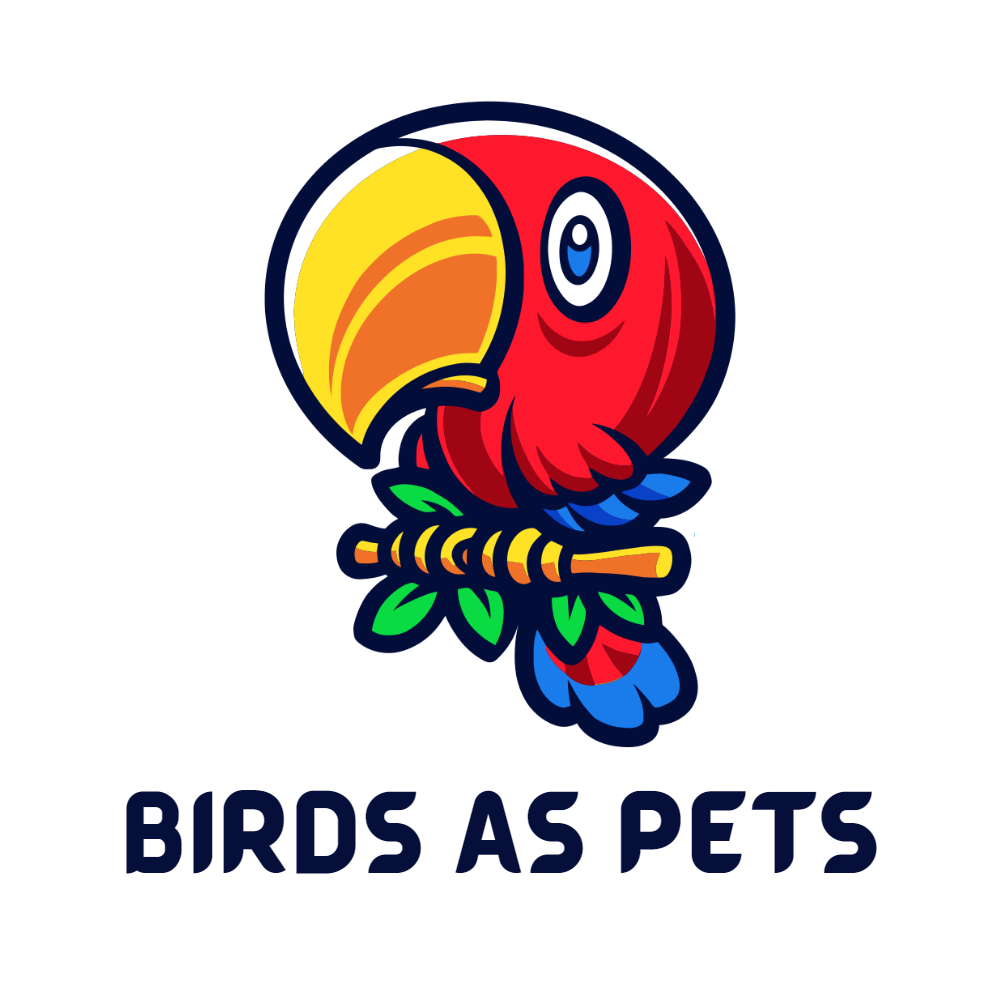Colorful, lively, and intelligent, Lorikeets have captured the hearts of bird enthusiasts worldwide. If you’re considering adding a Lorikeet to your family, this article will cover everything you need to know about these beautiful birds, from their natural habitat to their unique care requirements.
Quick Reference Table: Lorikeet Facts
| Fact | Details |
|---|---|
| Scientific Name | Trichoglossus spp. |
| Size | 10 to 12 inches (25 to 30 cm) |
| Lifespan | 15 to 20 years (up to 30 years with proper care) |
| Natural Habitat | Australia, Indonesia, Papua New Guinea, and surrounding islands |
| Diet | Nectar, fruits, and some seeds |
| Talking Ability | Moderate; can learn words and phrases |
Where Do Wild Lorikeets Live?
Wild Lorikeets inhabit a diverse range of environments across Australia, Indonesia, Papua New Guinea, and surrounding islands. They can be found in rainforests, eucalyptus forests, woodland areas, and even urban parks and gardens. These birds are highly adaptable, which has contributed to their success in the wild.
Lorikeets Lifespan: How Long Do They Live as Pets?
Lorikeets can live for 15 to 20 years in captivity, with some individuals reaching up to 30 years with proper care. As a Lorikeet owner, it’s essential to be prepared for a long-term commitment. This includes providing a balanced diet, a clean and safe living environment, regular veterinary check-ups, and social interaction to ensure your Lorikeet thrives.
Are Lorikeets Good Pets?
Lorikeets can make wonderful pets for the right person or family. They are social, intelligent, and affectionate, often forming strong bonds with their human caregivers. Their stunning plumage and playful antics can be a source of endless entertainment. However, they do require time, attention, and specialized care to ensure their health and happiness.
Are Lorikeets as Pets Good for Beginners?
Lorikeets may not be the best choice for first-time bird owners, as they have unique dietary and care requirements. Additionally, their high energy levels and tendency to be noisy might be overwhelming for someone new to bird keeping. However, with proper research, preparation, and dedication, a beginner can successfully care for a Lorikeet.
Are Lorikeets Easy to Care For?
Lorikeets have specific care requirements that may be more challenging compared to other pet birds. Their diet, consisting mainly of nectar and fruits, can be messy and requires careful monitoring to ensure proper nutrition. Additionally, their energetic personalities and social nature mean they need plenty of attention and mental stimulation.
Lorikeets Pros and Cons
| Pros | Cons |
|---|---|
| Social and affectionate | Can be noisy |
| Intelligent and trainable | Messy diet |
| Beautiful plumage | Specialized care requirements |
| Adaptable to various environments | Not ideal for first-time bird owners |
Lorikeets Price and Costs
The price of a Lorikeet can range from $200 to $800, depending on the species, age, and breeder. Initial setup costs for a cage, toys, perches, and other accessories can range from $300 to $500. Ongoing expenses include food, supplements, and regular veterinary check-ups, which can add up to a few hundred dollars per year.
Where to BuyLorikeets
It’s essential to purchase a Lorikeet from a reputable breeder or rescue organization. Reputable breeders will provide a healthy, well-socialized bird and offer guidance and support on their care. Rescue organizations may have older Lorikeets in need of a loving home, and adopting from these organizations can be a rewarding experience.
Caring for Lorikeets
Lorikeets Food
Lorikeets require a specialized diet, mainly consisting of nectar and fruits. Commercial nectar mixes and fresh fruits, such as apples, grapes, and berries, should be provided daily. Some seeds and pellets can be offered, but they should not make up the majority of their diet. Fresh water should always be available for drinking and bathing.
Health and Common Issues
Common health issues in Lorikeets include bacterial and fungal infections, due to their wet and messy diet. Regular cleaning of food and water dishes, as well as their cage, is crucial to prevent these issues. Other potential health problems include obesity, if fed an improper diet, and feather plucking due to boredom or stress.
Signs of Healthy Lorikeets vs. Sick Ones
| Healthy Lorikeet | Sick Lorikeet |
|---|---|
| Alert and active | Lethargic and unresponsive |
| Bright, clear eyes | Cloudy or swollen eyes |
| Smooth, well-groomed feathers | Ruffled, dirty, or plucked feathers |
| Normal droppings | Abnormal droppings (color, consistency, frequency) |
| Maintains a healthy weight | Weight loss or gain |
Lorikeets Pet Insurance
Investing in pet insurance for your Lorikeet can provide peace of mind and help cover unexpected veterinary expenses. Insurance policies can vary in coverage, from basic accident and illness plans to comprehensive wellness plans. It’s essential to research and compare different insurance providers to find a plan that best suits your Lorikeet’s needs and your budget.
Personality and Behavior
Lorikeets are known for their playful and curious nature. They are intelligent and can be quite mischievous, often getting into things and exploring their environment. These birds are affectionate and enjoy spending time with their human caregivers, making them a delightful companion for those willing to invest time and attention in their care.
Are Lorikeets Social?
Yes, Lorikeets are highly social creatures that thrive on interaction with their human caregivers and other birds. They form strong bonds with their owners and enjoy spending time out of their cage, playing, and exploring. If you’re considering adopting a Lorikeet, be prepared to provide plenty of social interaction and mental stimulation to ensure their happiness and well-being.
Speech and Noise of Lorikeets
Lorikeets have moderate talking ability and can learn to mimic words, phrases, and even sounds with practice. However, they are not as skilled at talking as some other parrot species. In addition to their talking ability, Lorikeets can be quite noisy, producing a variety of natural vocalizations, including screeches, whistles, and chatters. Potential owners should be prepared for a noisy household with a Lorikeet.
Similar Species to Lorikeets
There are several species of parrots that share similar characteristics with Lorikeets, including:
- Rainbow Lorikeet (Trichoglossus moluccanus)
- Scaly-breasted Lorikeet (Trichoglossus chlorolepidotus)
- Red-collared Lorikeet (Trichoglossus rubritorquis)
- Blue-streaked Lory (Eos reticulata)
- Chattering Lory (Lorius garrulus)
While these species might look similar, their care requirements and personalities can vary. It’s essential to thoroughly research any species you’re considering to ensure it’s the right fit for your lifestyle and home.
Can Lorikeets Live With Other Pets and Birds?
Lorikeets can sometimes coexist peacefully with other birds, especially if they are introduced at a young age and both birds are of similar size and temperament. However, it’s important to monitor their interactions closely, as individual personalities can vary, and conflicts can arise. When it comes to other pets, such as dogs and cats, caution is advised, as their natural predatory instincts might pose a threat to the Lorikeet.
Are Lorikeets Legal to Have as Pets?
In most locations, Lorikeets are legal to keep as pets. However, some regions may have specific restrictions or permits required for owning exotic birds. It’s essential to research your local laws and regulations before acquiring a Lorikeet to ensure compliance.
Additional Resources
- Example Book on Lorikeet Care
- Lorikeet Enthusiast Forum
- Lorikeet Facebook Group
- Scientific Article on Lorikeet Behavior
FAQ for Lorikeets as Pets
Do Lorikeets talk?
Yes, Lorikeets can learn to talk, but their talking ability is moderate compared to other parrot species. They can mimic words, phrases, and sounds with practice.
Are Lorikeets suitable for families with young kids?
Lorikeets can be a good fit for families with young kids, as long as the children are taught how to interact with the bird safely and respectfully. Adult supervision is recommended during interactions.
Can Lorikeets be trained?
Yes, Lorikeets are intelligent and can be trained to perform various tricks, step up onto your hand, and even talk. Positive reinforcement techniques, such as clicker training, are most effective for teaching Lorikeets new behaviors.
How do I know what gender Lorikeets are?
Determining the gender of Lorikeets can be challenging, as they are not sexually dimorphic, meaning both males and females have similar appearances. To accurately determine the gender, a DNA test or surgical sexing by a qualified avian veterinarian is recommended.
What is the lifespan of a Lorikeet?
With proper care, a Lorikeet can live anywhere from 15 to 25 years or more. Their lifespan depends on factors such as diet, habitat, and overall health.
What should I feed my Lorikeet?
Lorikeets have a specialized diet that primarily consists of nectar, pollen, and fruit. A high-quality commercial nectar mix, fresh fruit, and occasional treats like insects and seeds can provide a balanced diet for your pet Lorikeet.

